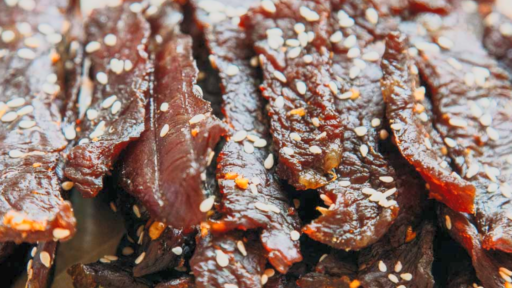Is Beef Jerky a Healthy Snack? An Overview
When it comes to selecting snacks that are both satisfying and nutritious, beef jerky often makes its way into the conversation. Known for its rich flavor and convenience, beef jerky is a popular choice among those looking for a quick protein fix. But is beef jerky truly a healthy snack option? To answer this question, it’s essential to delve into the nutritional content of beef jerky, weigh its health benefits against potential drawbacks, and consider how it fits into an overall balanced diet.
Nutritional Content of Beef Jerky
Beef jerky is primarily made from lean cuts of beef that are trimmed of fat, marinated, and then dried at low temperatures. This process concentrates its protein content, making beef jerky a high-protein, low-carb snack. A typical 1-ounce (28-gram) serving of beef jerky contains roughly 9 to 14 grams of protein, which is about 20% of the recommended daily intake for most adults. Additionally, beef jerky provides important vitamins and minerals, including iron, zinc, vitamin B12, phosphorus, and magnesium. These nutrients play crucial roles in muscle development, immune function, and overall health.
Health Benefits of Beef Jerky
The high protein content in beef jerky is its most touted health benefit. Protein is essential for muscle repair, growth, and maintenance, making beef jerky a favorable snack option for athletes, fitness enthusiasts, or anyone looking to increase their protein intake. The low carbohydrate content of beef jerky also makes it a suitable snack for those following low-carb diets like the keto diet. Moreover, the vitamins and minerals found in beef jerky contribute to a well-rounded diet, supporting various bodily functions and overall health.
Potential Drawbacks
While beef jerky offers several health benefits, there are also potential drawbacks to consider. Many commercial beef jerky products contain high levels of sodium, which is used as a preservative and flavor enhancer. Excessive sodium intake is associated with an increased risk of high blood pressure, heart disease, and stroke. Some beef jerky products may also contain added sugars and artificial preservatives, which detract from their nutritional value. Moreover, the process of making beef jerky often involves smoking or curing with nitrates, which have been linked to certain health risks when consumed in large quantities.
How to Choose and Consume Beef Jerky Wisely
To enjoy beef jerky as part of a healthy diet, it’s important to be mindful of the product’s ingredients and nutritional content. Opt for beef jerky that is low in sodium, free from added sugars, and devoid of artificial preservatives. Additionally, consider consuming beef jerky in moderation as part of a balanced diet that includes a variety of foods. Pairing beef jerky with high-fiber foods, such as vegetables or whole grains, can also help balance out its high sodium content and ensure a well-rounded nutritional intake.
Conclusion
Beef jerky can be a healthy snack option when chosen carefully and consumed in moderation. Its high protein content and low carbohydrate level make it an appealing choice for those seeking nutritious snacks. However, it’s important to be aware of the sodium and potential additives in beef jerky products. By selecting healthier versions and incorporating them into a balanced diet, beef jerky can be enjoyed without compromising health goals.






